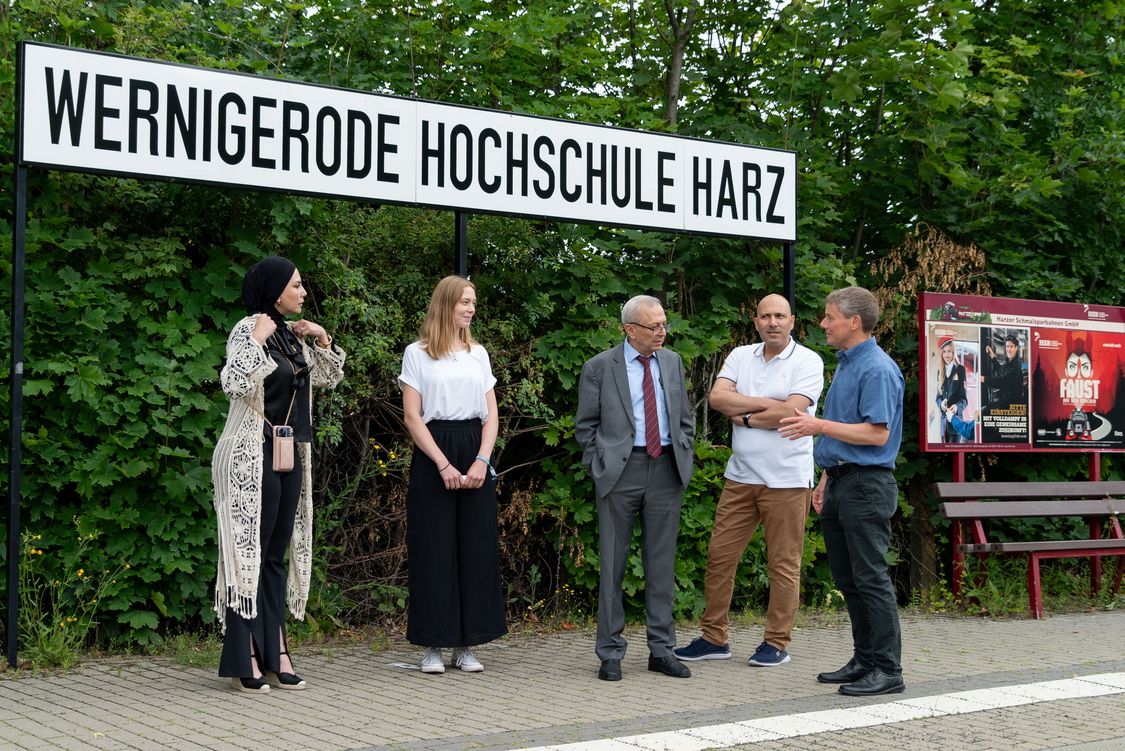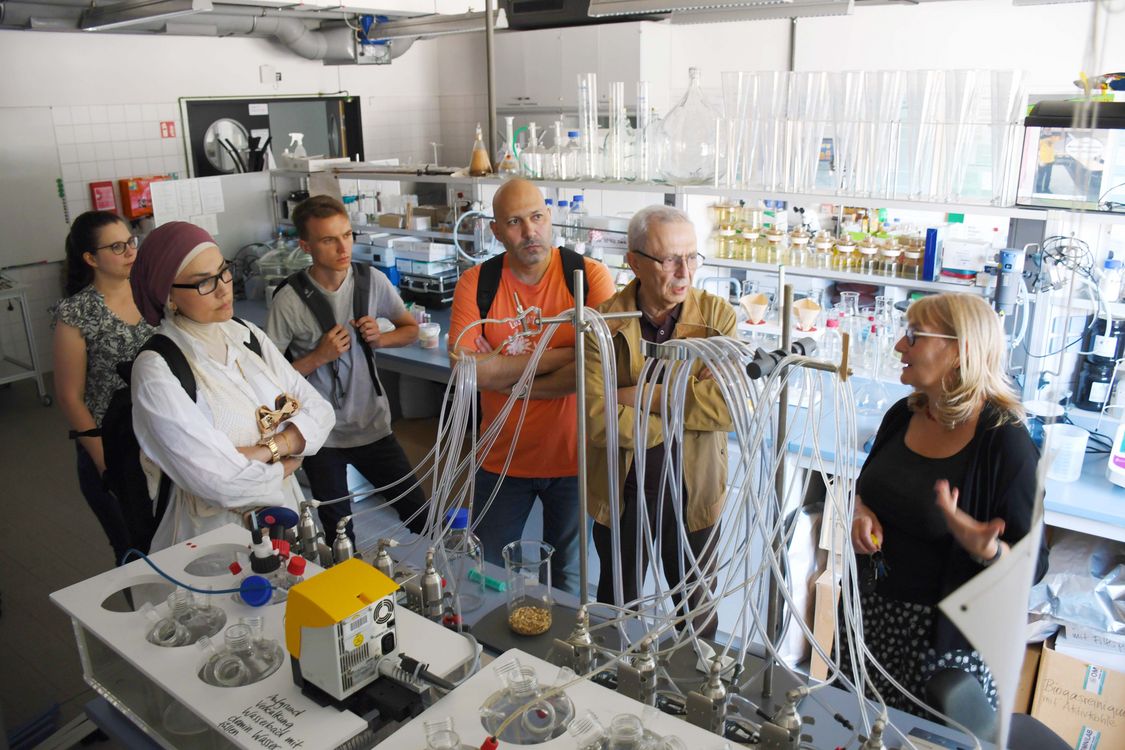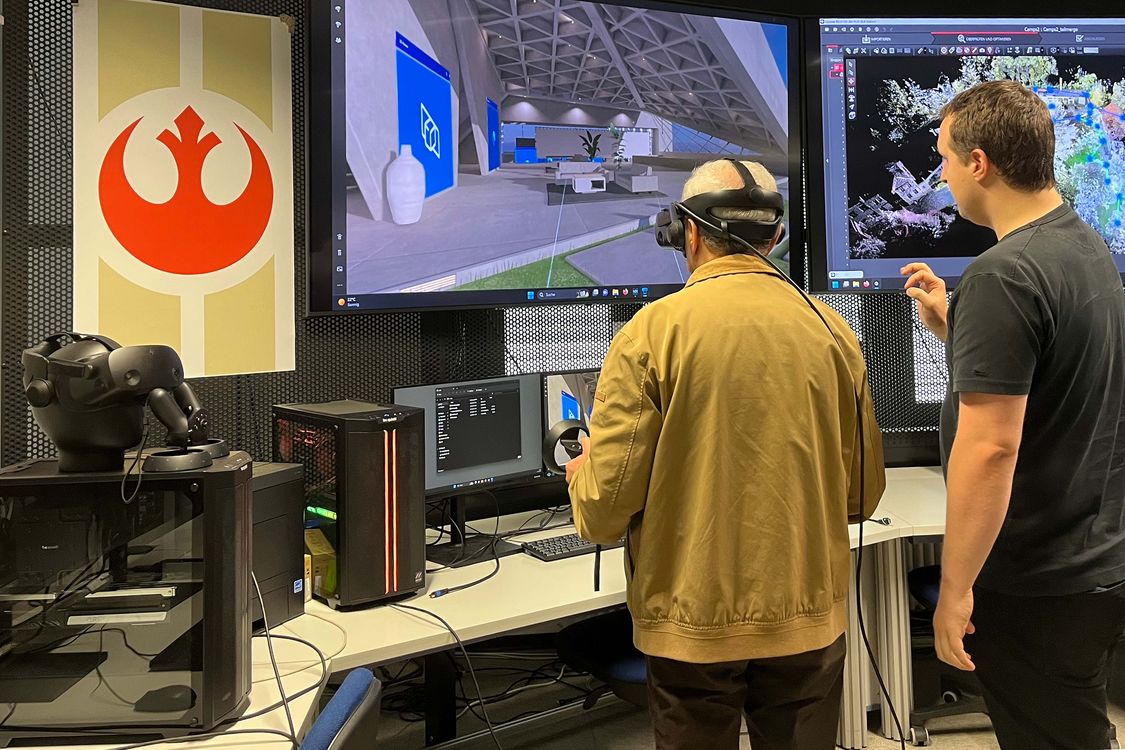
Preparations for large water management research project begin with international visit to Harz
Water is the source of life, but as climate change advances, it is increasingly causing great suffering – from extreme droughts resulting in water scarcity, or heavy deluges causing floods. Researchers at Harz and Dortmund Universities of Applied Sciences are working with scientists from Jordan to overcome these future challenges. Three guests from Jordan who are part of the international project “RainGIS” came to Wernigerode in July to learn more.
The project is led by Dr Hardy Pundt who teaches Geographic Information and Database Systems at Harz University of Applied Sciences, and has already conducted research into how geographic information services can be adapted to climate change. In the following interview, he explains how this international partnership came to be and what the partners are planning.
Jordan and Germany are not only culturally very different, but also geographically. Despite this, where do you see parallels in research when it comes to water?
Jordan is the second driest country in the world, and so researchers there are highly interested in solutions for water acquisition, treatment, and storage. It’s an incredibly important issue. But even in Germany, we have dry periods – look at the Harz Forest. Yet at the same time, both countries experience flooding as well. Rains in Jordan are usually brief, but severe. Europe isn’t spared this either, as evidenced by the massive floods in 2013 and 2021. Germany and Jordan are interested in being able to better predict these two extremes, prepare for them, and achieve more effective water management.

You have been working with partners from Jordan on the RainGIS project since June 2023. How did this intercontinental cooperation come about?
There was a long lead up to this project. In 2022, the Deutsche Forschungsgemeinschaft (DFG) invited universities of applied sciences to visit Jordan to discuss the issue of “water nexus” as part of its UDIF-HAW initiative. The initiative aims to support the internationalisation of research at these schools. It’s an entirely new project, since the DFG previously focused on universities. To participate, you have to submit a cover letter, CV, and a list of core research areas and publications. It took some effort. I was very interested because of the potential that I saw in the project, and I was a little surprised to find out that I had been accepted – especially since only about 20 researchers were selected for the one-week trip in September.
What personal insight did you gain in Jordan?
It was my first time in an Arab country, and I was a little apprehensive to see what I would experience, and what sort of cultural differences might have to be overcome. However, once I was there, all my uncertainties vanished, because our cooperation was very warm and casual. This positive first impression only remained over the following months.
What was the added value of this trip at the scientific level?
Our time there was very impressive. We visited seven universities of applied sciences with a strong research background, and focused on networking. During the delegation trip, I quickly began speaking with Dr Nawras Shatnawi and Dr Hiba Al Kharabsheh from Al-Balqa’ Applied University, because we have similar research areas. Dr Shatnawi works in the Department of Surveying and Geomatics Engineering, and Dr Al Kharabsheh in the Department of Water Resources and Environmental Management. They are both very interested in working with us, so we quickly got in touch to discuss a new initiation project after the delegation trip.
Initiation project? What does that mean, exactly?
The DFG provided funding to facilitate German-Jordanian research projects on the topic of water. This funding was supposed to make mutual visits and communication possible, in turn serving as the basis for a bigger project involving work and research on the topic. Our application was ultimately successful. Before we were accepted, Dr Hani Abu Qdais from the Jordan University of Science and Technology got on board, and I got in touch with Dr Nicole Saenger, Vice President of Research and Sustainable Development at Dortmund University of Applied Sciences, whom I also got to know during the delegation trip. Our primary objective is to submit a joint application for a multi-year project within one year – the visit in Germany was “just” the beginning.


How did you arrange the visit for the guests from Jordan?
The three researchers first went to Darmstadt, where we visited the University of Applied Sciences and got to know each other better. We were then responsible for the visit to Harz University of Applied Sciences from 10 to 12 June, including a visit to the Zillerbach Waterworks and Granetal Dam to show how we manage water supplies in Germany. The visit to the Nationalpark Harz illustrated our own struggles with extreme drought. Of course, we also arranged a tour through the campus and labs in Wernigerode, with particular emphasis on continued education and the deriving of research approaches. Dr Andrea Heilmann and Dr Johannes Bühl – who research water management, climate protection, and the recording and analysis of environmental data – are also joining the team at Harz University of Applied Sciences.
What specific ideas did you come up with?
We want to investigate the correlation between climate change and rainwater collection in regions with a dry climate, while applying hydrological and geomatic methods. It will be a while before we can implement our findings, however. We defined our initial, short-term goals and specific tasks during the visit in Jordan. In the coming months, we’ll continue working on the project through online meetings, with a visit to Jordan planned in January 2024. By that time, we aim to have a draft project application written up which we will finalise in person and then be able to submit to a funding body. Only then will we see whether our preliminary work has paid off and whether we can implement our ideas in a research project.
The RainGIS project is being funded by the Deutsche Forschungsgemeinschaft (DFG) from 1 July 2023 to 29 February 2024 – project number 525350250.
17.07.2023
Author: Karoline Klimek
Image author: © Anna-Michaela Schmidt, Karoline Klimek, Sophie Moneke
Image rights: © Hochschule Harz
